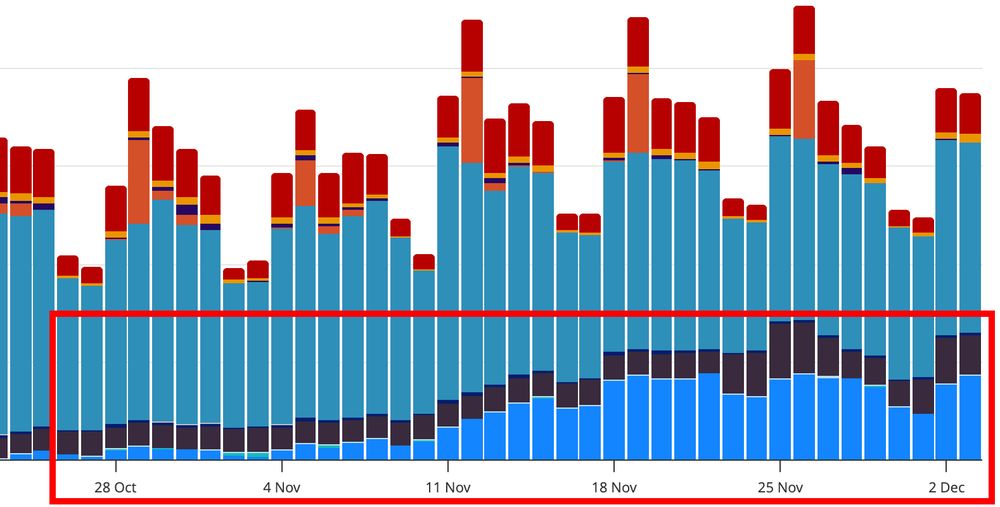
CMFI's @lisamaierlab.bsky.social @unituebingen.bsky.social show in @nature.com: many non-antibiotics weaken the natural protective function of the intestine.
Press release: www.cmfi.uni-tuebingen.de/en/news-even...

CMFI's @lisamaierlab.bsky.social @unituebingen.bsky.social show in @nature.com: many non-antibiotics weaken the natural protective function of the intestine.
Press release: www.cmfi.uni-tuebingen.de/en/news-even...
#science #microbiome #health
www.nature.com/articles/s41...
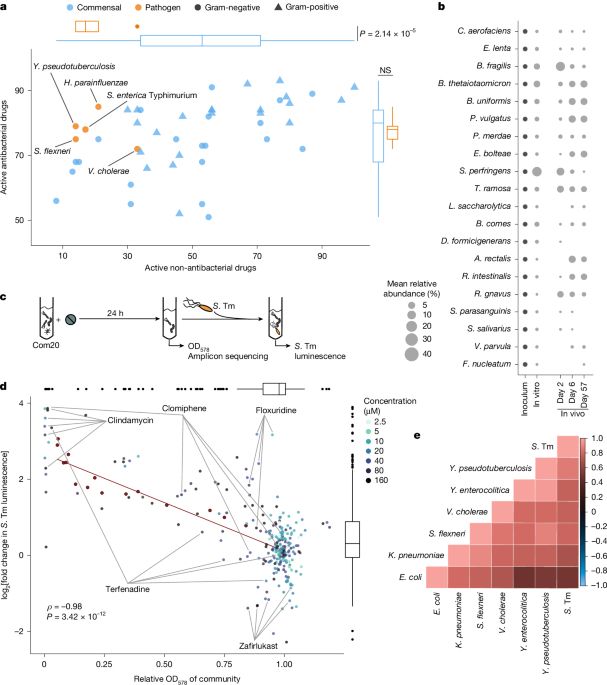
Our latest research is out @nature.com: We show that non-antibiotic drugs can disrupt colonization resistance, raising the risk of enteric infections.
rdcu.be/ewwrG
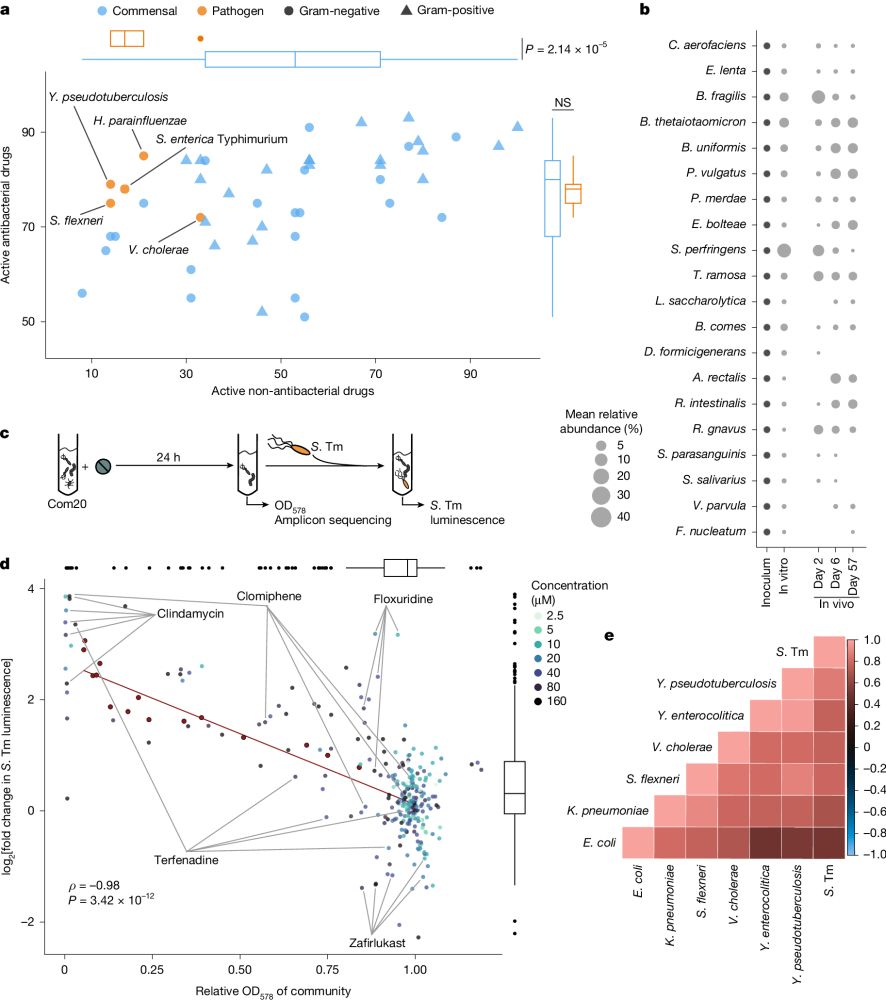
Our latest research is out @nature.com: We show that non-antibiotic drugs can disrupt colonization resistance, raising the risk of enteric infections.
rdcu.be/ewwrG
We known that the #microbiome confers colonization resistance against #pathogens, we know that some meds 💊 affect gut microbes 🦠
So, do 💊 alter colonization resistance? It turns out that some do! If you wanna know more, check out our latest work www.nature.com/articles/s41...
We known that the #microbiome confers colonization resistance against #pathogens, we know that some meds 💊 affect gut microbes 🦠
So, do 💊 alter colonization resistance? It turns out that some do! If you wanna know more, check out our latest work www.nature.com/articles/s41...
Find out more here: buff.ly/5akzsgs
@kiranrpatil.bsky.social @skamrad.bsky.social
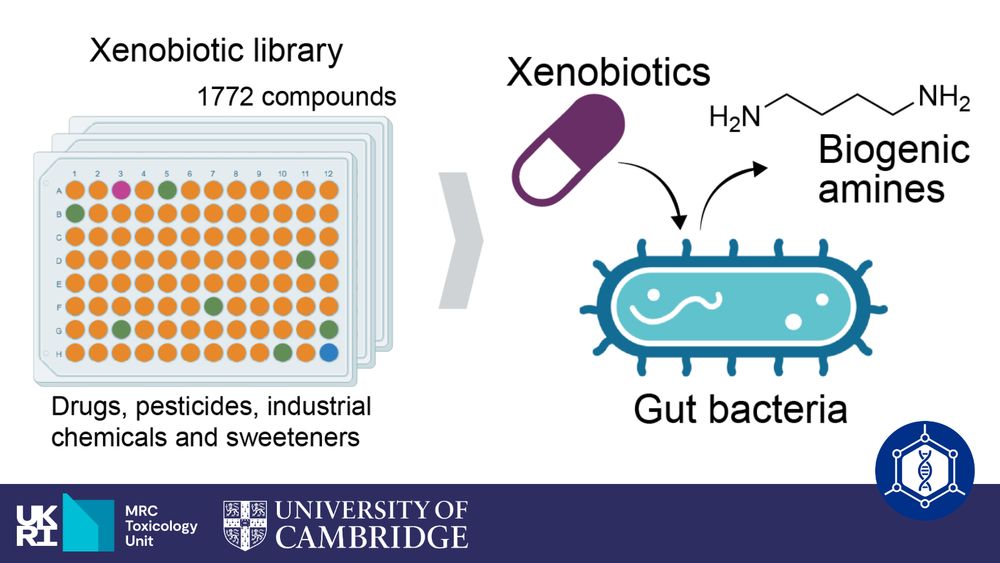
Find out more here: buff.ly/5akzsgs
@kiranrpatil.bsky.social @skamrad.bsky.social
They can shield us from harmful chemicals—and the latest study from Kiran Patil's lab (@kiranrpatil.bsky.social)
uncovers how. We’re proud to have contributed to this exciting work!
#Microbiome #Detox
www.nature.com/articles/s41...
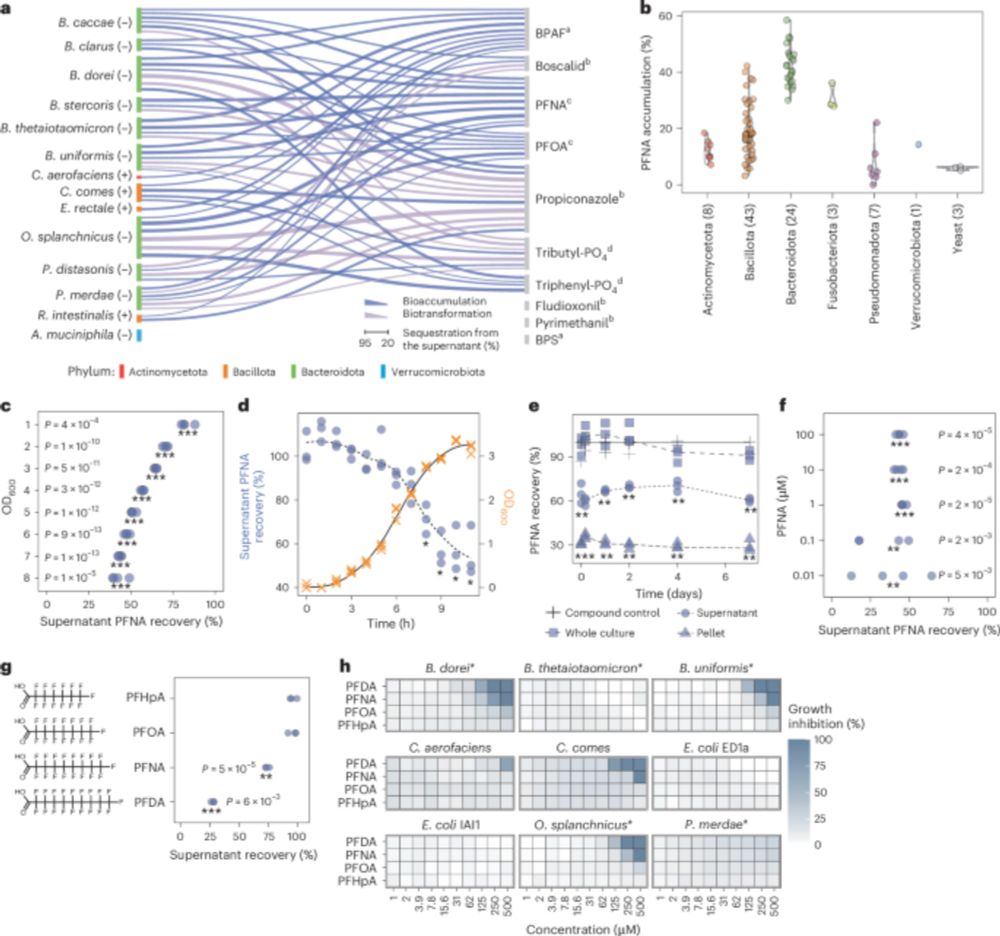
They can shield us from harmful chemicals—and the latest study from Kiran Patil's lab (@kiranrpatil.bsky.social)
uncovers how. We’re proud to have contributed to this exciting work!
#Microbiome #Detox
www.nature.com/articles/s41...


How many cells transmit when a strain is shared?
Can strain composition be dynamic when species composition is stable?
We answer these and related questions for the facial skin microbiome in our latest paper.
🧵[1/10]

How many cells transmit when a strain is shared?
Can strain composition be dynamic when species composition is stable?
We answer these and related questions for the facial skin microbiome in our latest paper.
🧵[1/10]

👉🏼 rdcu.be/eelLn
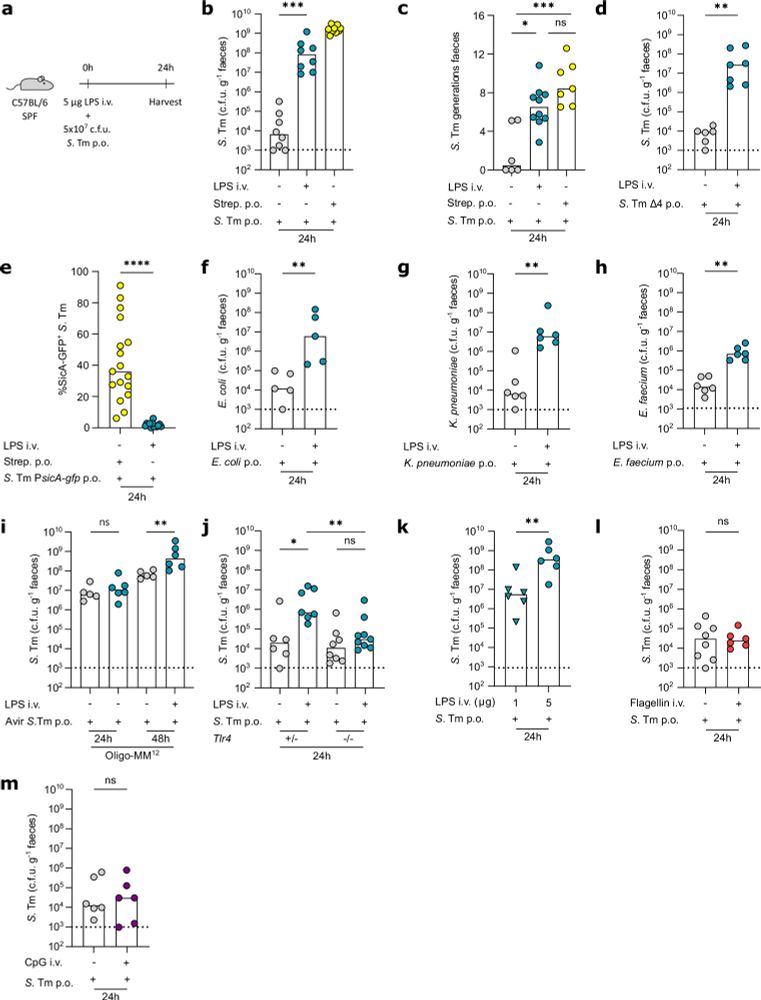
👉🏼 rdcu.be/eelLn
www.cmfi.uni-tuebingen.de/mariecuriephd
www.cmfi.uni-tuebingen.de/mariecuriephd
@harriswang.bsky.social & co
www.nature.com/articles/s41...

@harriswang.bsky.social & co
www.nature.com/articles/s41...
www.nature.com/articles/s42...

www.nature.com/articles/s42...
DMSO= helps but kills pol processivity
Betaine= Lots of spurious products
1,2-propandiol= processivity retained and usually specific product
Gel order:
Upstream homology arm, downstream homology arm, full length locus with target gene in middle, a not so great detection primer set. Ladders are NEB 1KB Plus. Arms 1kbp. Full locus 2880bp. All amplified in same conditions.
10/n




DMSO= helps but kills pol processivity
Betaine= Lots of spurious products
1,2-propandiol= processivity retained and usually specific product
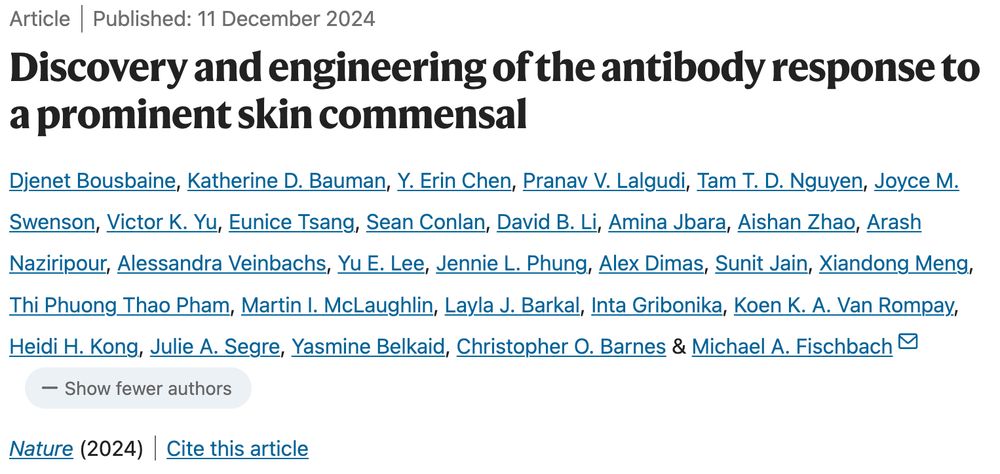
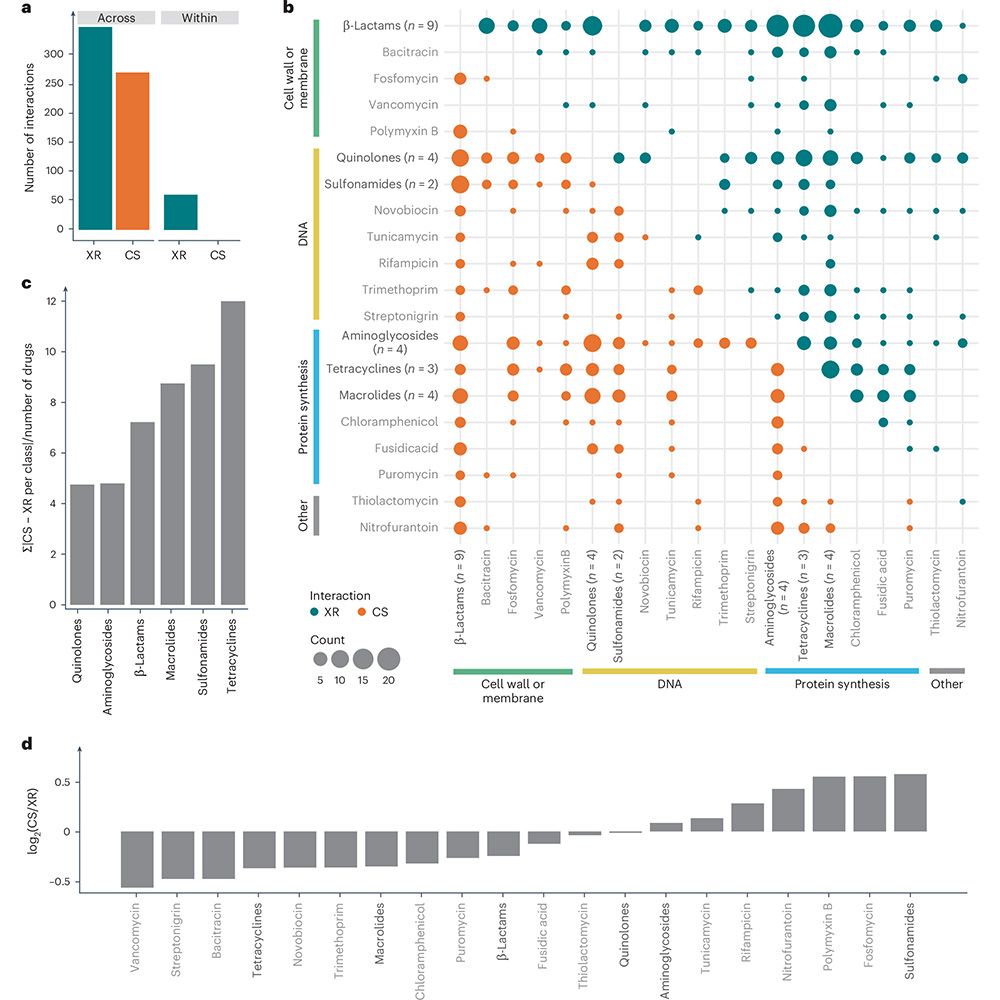
🧠🦠🥼
Hope it is helpful for the people joining in here and nucleating a community.
May have missed people, please leave a reply and I can then add to the pack.
Cheers.
go.bsky.app/PZhXP7R
🧠🦠🥼
Hope it is helpful for the people joining in here and nucleating a community.
May have missed people, please leave a reply and I can then add to the pack.
Cheers.
go.bsky.app/PZhXP7R
"Extensive impact of non-antibiotic drugs on human gut bacteria" (2018) www.nature.com/artic...

"Extensive impact of non-antibiotic drugs on human gut bacteria" (2018) www.nature.com/artic...
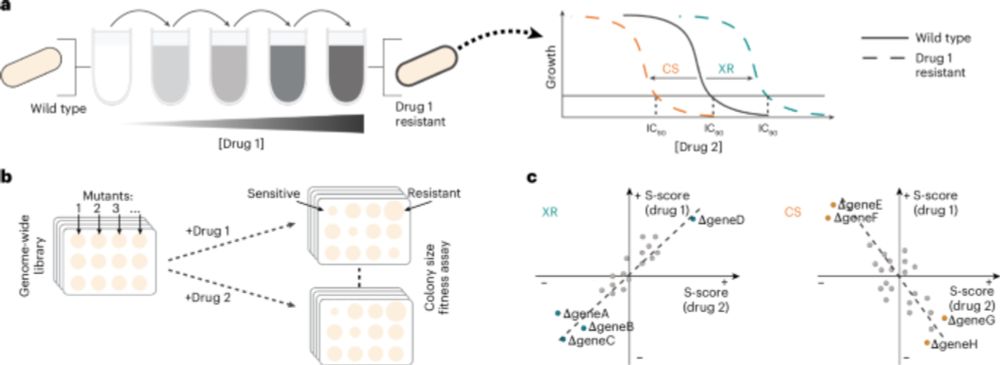
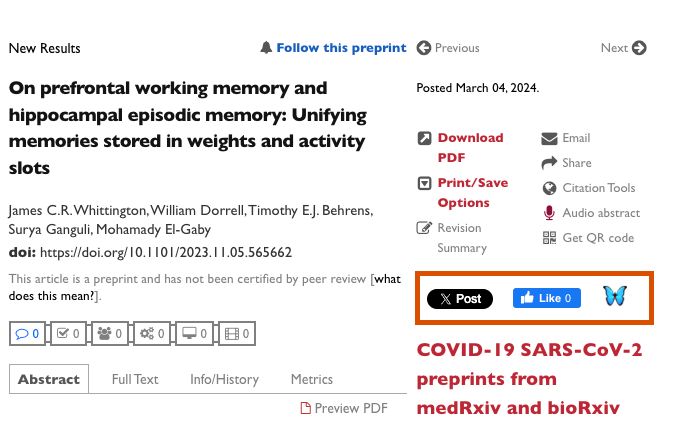
Enjoy!

www.nature.com/articles/d41...

www.nature.com/articles/d41...



